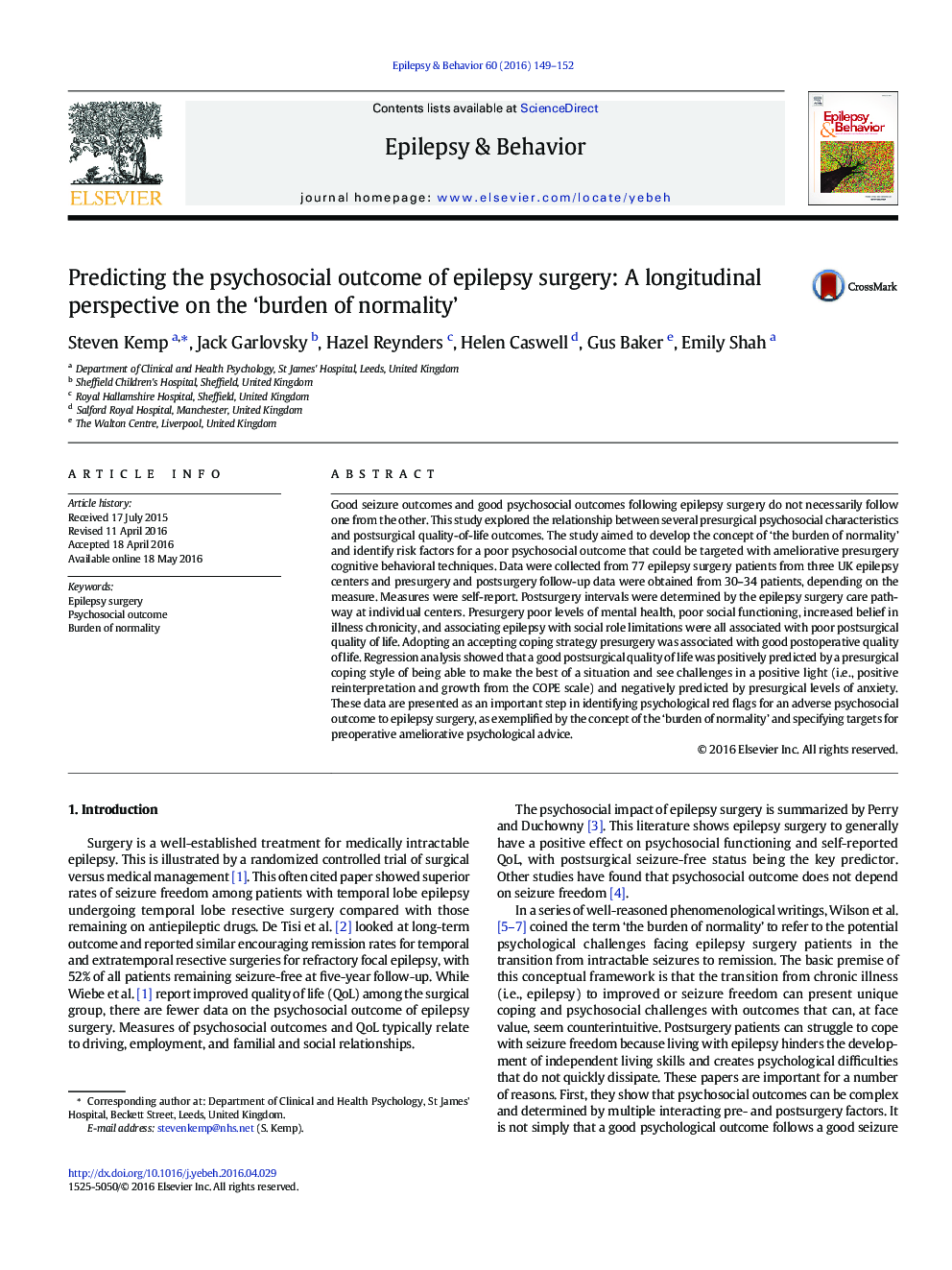| Article ID | Journal | Published Year | Pages | File Type |
|---|---|---|---|---|
| 6009891 | Epilepsy & Behavior | 2016 | 4 Pages |
Good seizure outcomes and good psychosocial outcomes following epilepsy surgery do not necessarily follow one from the other. This study explored the relationship between several presurgical psychosocial characteristics and postsurgical quality-of-life outcomes. The study aimed to develop the concept of 'the burden of normality' and identify risk factors for a poor psychosocial outcome that could be targeted with ameliorative presurgery cognitive behavioral techniques. Data were collected from 77 epilepsy surgery patients from three UK epilepsy centers and presurgery and postsurgery follow-up data were obtained from 30-34 patients, depending on the measure. Measures were self-report. Postsurgery intervals were determined by the epilepsy surgery care pathway at individual centers. Presurgery poor levels of mental health, poor social functioning, increased belief in illness chronicity, and associating epilepsy with social role limitations were all associated with poor postsurgical quality of life. Adopting an accepting coping strategy presurgery was associated with good postoperative quality of life. Regression analysis showed that a good postsurgical quality of life was positively predicted by a presurgical coping style of being able to make the best of a situation and see challenges in a positive light (i.e., positive reinterpretation and growth from the COPE scale) and negatively predicted by presurgical levels of anxiety. These data are presented as an important step in identifying psychological red flags for an adverse psychosocial outcome to epilepsy surgery, as exemplified by the concept of the 'burden of normality' and specifying targets for preoperative ameliorative psychological advice.
